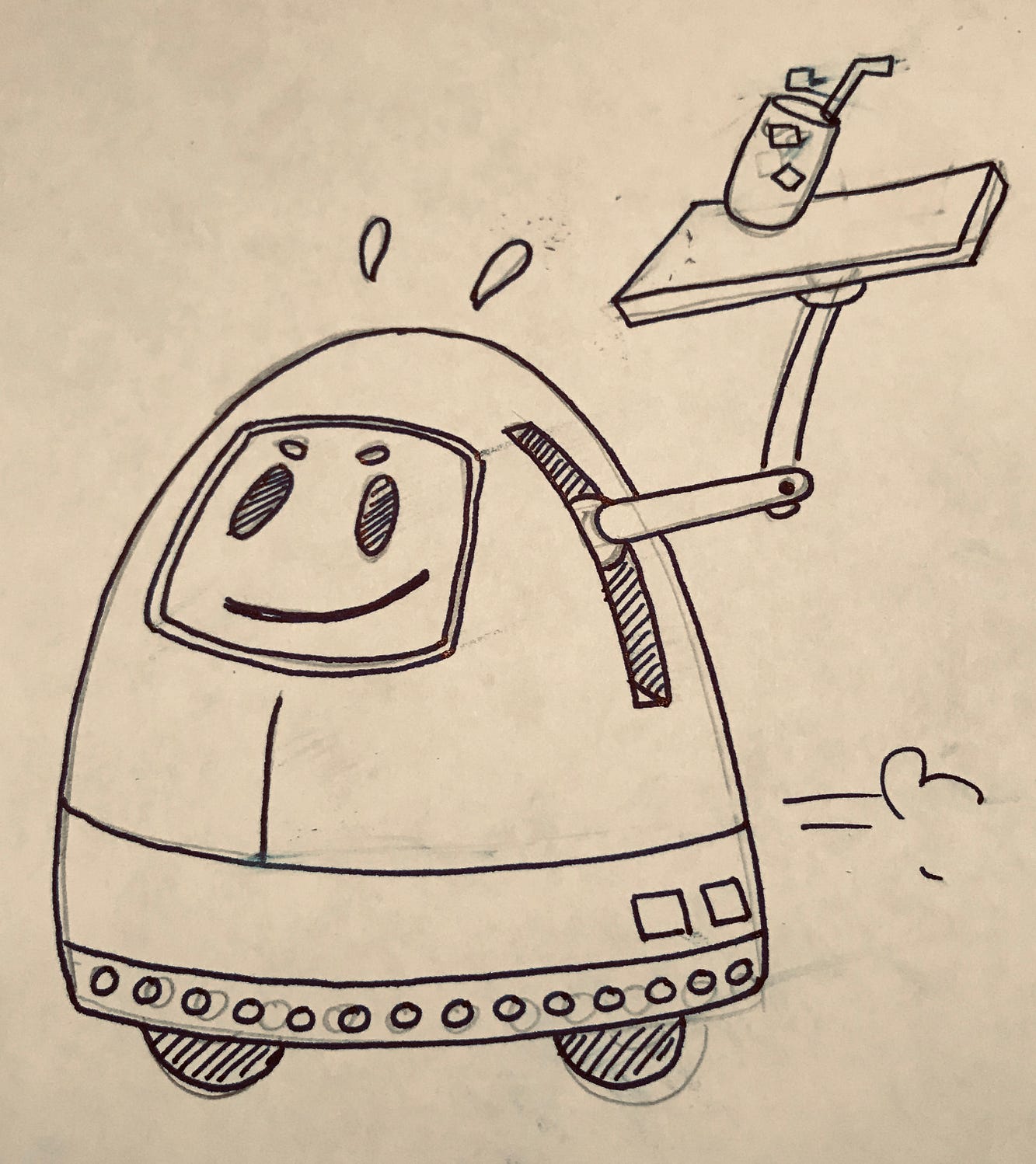“The information is then wiped from our system…†is the promise of Alibaba’s new robot-hotel chain, where guests must provide biometric (in the form of facial recognition) information in order to get access to their rooms. The company promises that the guests information will be wiped from the system, but let’s face it, it never is. This isn’t some high-tech insider information I’m imparting here. This is simple observation of the numerous times that a data breach has revealed that information that was supposed to have been deleted was hoarded on a server somewhere. So why do people engage with digital services that collect this data? Why are people sharing all kinds of personal information and biometrics in the service of “convenience†and “frictionless transactionsâ€.

Part of the attraction of ANY service is that your experience with it as a consumer evolves over time. You go to the same bar after work every Friday night? The bartender is going to learn and know your name and your favorite drink. Stay at the same hotel every time you travel to Schenectady to visit your parents? Guess what, they’re going to remember you too (and that towels keep mysteriously going missing from your room.) In a purely physical form, this has emerged in the form of various reward systems (buy three bagels, get the fourth free, for example).
This familiarity over time is part and parcel of delivering a recurring service to people. It’s okay when humans do it to humans, right? The fact the Jim the Barista recognizes you on sight is a comfort rather than creepy. But when a computer does it, it becomes a conspiracy. It becomes “Big Dataâ€. It becomes, as we are told, yet another form of control rather than a convenience.
This is the big disconnect that those who sound alarm bells bout data collection and aggregation are missing. Almost daily I encounter rants and discussions about the ethical collection of information, about how we’ve allowed our homes to essentially be wiretapped through our screens and devices. And generally, they all end with something like “wake up sheepleâ€. But what they all miss is that these devices and services are, ultimately, tapping into a long-ingrained comfort system. It’s not that people are not aware that their information is being collected, it’s that the information is being used to provide them with a more personal experience and thusly, the collection is acceptable. It’s like the old Cheers tagline “where everybody knows your nameâ€. These online services and devices are simply a continuation of that understanding of how hospitality works best.
In order to provide the best possible service to a customer/client, data must be collected. This goes the same for the guy tending bar at Cheers and the web-service you buy your bespoke knitted socks from. The big difference to you as a consumer is that the guy at the bar is a dead-end, the information may go out in gossip and casual conversation, but it’s not going anywhere else. In the case of the little web-service, that’s a different story. That information may (depending on who they are using to provide their services to you) be polished, anonymized and added to a much larger pool of data out there. Or it may be stored online so they know just who you are and how many pairs of pink-cherry alpaca socks you bought from them. In either case, you get a warm fuzzy whenever you reconnect with that bar or service.
So what you are fighting against, if you truly want to change the minds of all those “sheeple†who are willingly sharing their personal information willy-nilly all over the internet, is THAT feeling. You’re not fighting an idea, or a sense of security or even a lack of digital education. When you can marshal a way to counter that feeling of bespoke, the warm fuzzies that come with feeling like a service *knows you* the way your favorite supermarket checker does, then and only then will you have a way to bring data sharing back under control on the consumer side of things.



